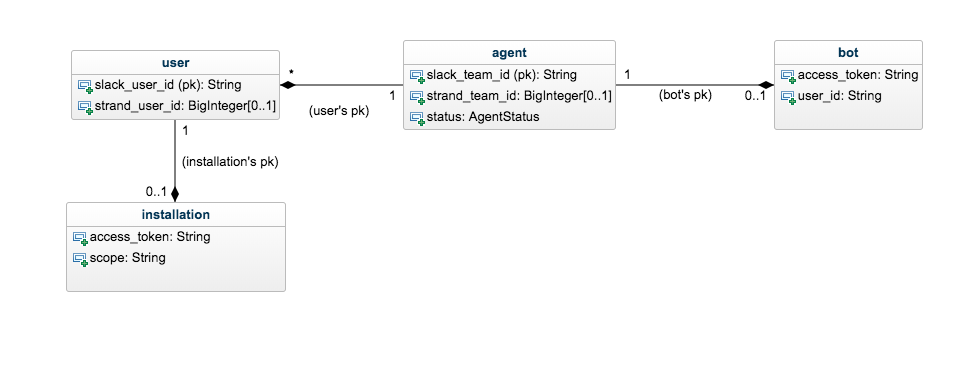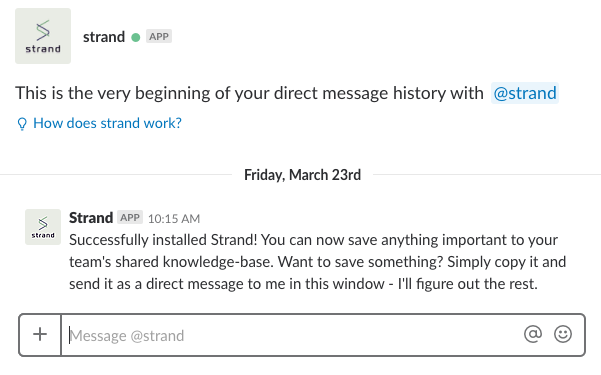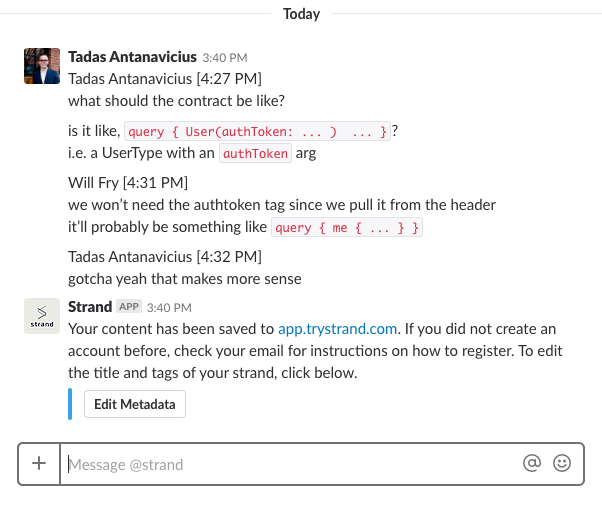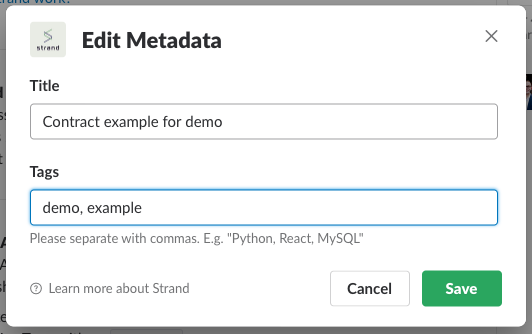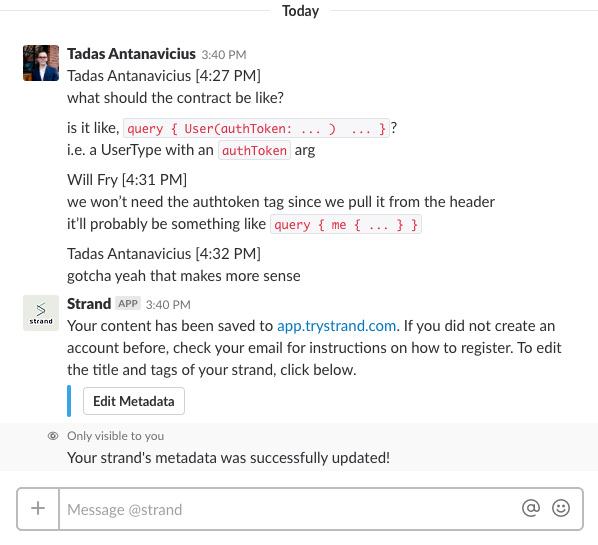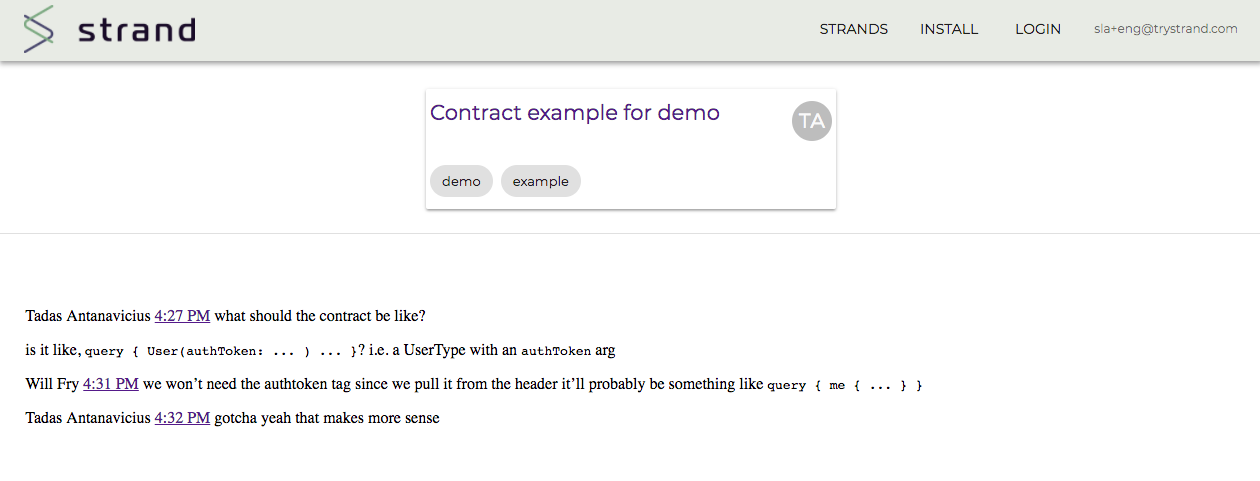This project is retired. No further development or maintenance is planned. Feel free to fork and re-use.
This Slack integration was built using:
- Flask 0.12
- Python 3.6
- pytest 3.3
- Python Slack Client 1.1
- SQLAlchemy 1.2.5
This app was hosted on Amazon ECS.
strand-api was the companion backend API
strand-ui was the companion Web UI
Contributors: @tadasant and @Audace
To start, clone the repository locally and create a virtual environment. Install the dependencies from the requirements file into your virtual environment.
If you're using PyCharm, simply use the "Run Tests" run configuration to run all the tests.
Without PyCharm, cd into the root directory and run pytest --flake8 --pep8 --no-cov
You can also run ptw to run pytest-watch
Note that you'll need strand-api running on STRAND_API_HOST
Make sure you've created a superuser with username ccs, email ccs@solutionloft.com and password randomPassword.
$ python manage.py createsuperuser --username ccs.
If you're using PyCharm, simply use the "Run (Local)" run configuration to start the Flask server.
If not, cd into the root directory and run python3 run.py
ngrok sets up a tunnel online so that we have an external URL to tell Slack about.
This is useful because much of strand-slack relies on triggers from Slack callbacks over the wire.
Steps to use ngrok:
- Download ngrok, unzip, and put the script somewhere in your $PATH (likely
/usr/bin/local) - Run
ngrok http 5000(assuming 5000 is thePORTyou set indevelopment.config.json) - You can watch the requests getting routed through the tunnel at http://localhost:4040/inspect/http
- Take the forwarding address (e.g. http://5c80fc28.ngrok.io) and configure it on https://api.slack.com/apps/A8YTKNNMQ/interactive-messages
Now Slack will be able to call your local server as you interact with the app!
Note that on the free ngrok plan, you'll need to do this every time you restart ngrok.
Typical flow is this:
- Requests come into a
blueprint blueprintvalidates the payload, responds to the requestor, and passes the payload onto atranslatortranslatorconverts it to the SLA domain model and passes it to aserviceservice, with a scoped DB session, ingests state from theDBif needed, and delegates work tocommandscommand, with a scoped DB session, is a unit of work that makes API calls usingwrappersand/or pushes state to theDB
Notable invariants:
serviceshould not mutate the DB (only SELECT)commandshould not read the DB (only UPDATE/INSERT)blueprints(input point) andwrappers(output point) are not privy to the SLA domain model
All modeled elements of the Strand API's domain are prefixed with Api, e.g. ApiUser.
All modeled elements of the Slack domain are prefixed with Slack, e.g. SlackUser.
All other modeled elements are part of the local, SLA domain.
See #discussion-105 for research details.
To generate a new revision after making SQLAlchemy model changes, run PYTHONPATH=. alembic revision --autogenerate -m "<revision msg>"
Please double-check autogenerated migrations with these caveats in mind.
Commit updated revisions. They will be run in the various environments (staging, prod) during Dockerfile build.
